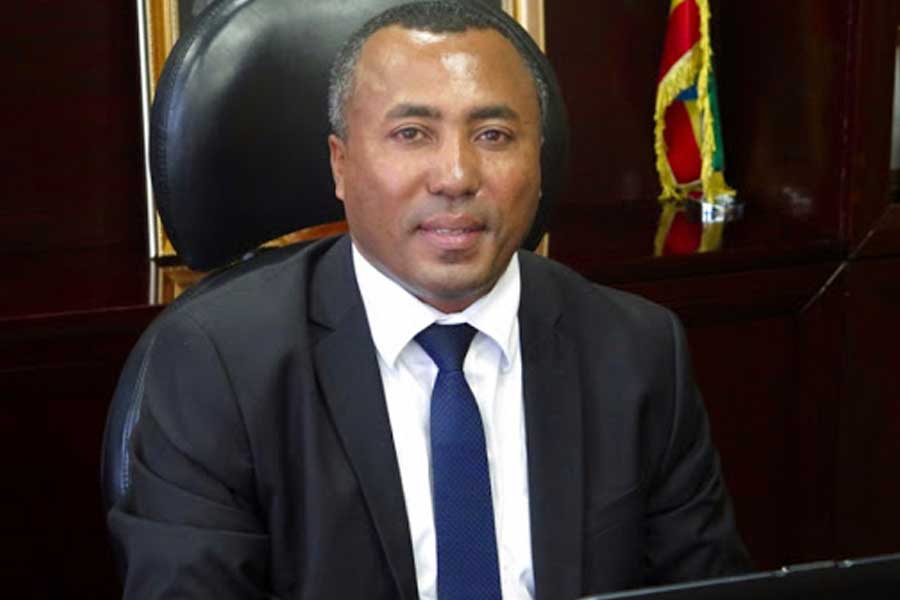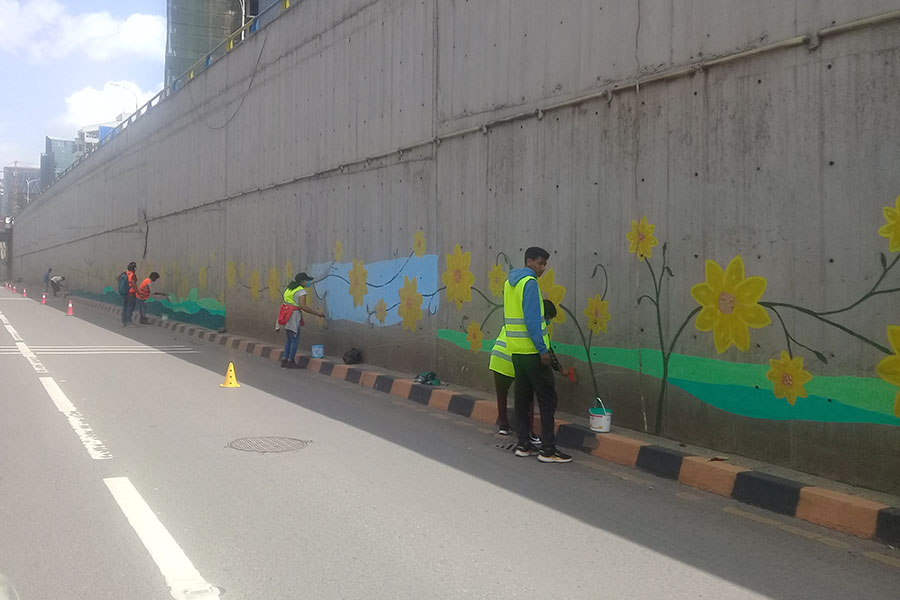
Fortune News | Aug 20,2022
I recently experienced a double payment fiasco due to a banking system glitch.
I paid for a domestic repair service through a mobile bank transfer which was indicated as a failed transaction. After I repeated the attempt, it was confirmed successful.
The error went unnoticed until I chanced upon a discrepancy in my account statement. Meanwhile, the recipient, who used a hard copy bank account book and rarely visited the bank, remained unaware of the double payment.
Luckily, the person was willing to check and reimburse me. But this may not always be the case.
The problem of online banking glitches and network issues is pervasive, causing significant inconvenience and financial losses for customers. Despite being mandated to provide reliable virtual services, banks and telecom service providers often fall short, forcing customers to navigate a bureaucratic labyrinth to reclaim their lost funds.
The onus is on the customer to prove beyond a reasonable doubt that they are entitled to a refund, even if the glitch was clearly not their fault. This can be daunting, especially considering the endless formalities involved.
The issues related to ATM services are no less dire, if not worse.
The odds of finding a working ATM are unpredictable, with long queues defeating their purpose of saving time waiting in line at bank counters. It can sometimes be faster to receive service from the counter than to search for a working machine. Even during the weekend and evening hours, I brace myself for the bank security guards to inform me verbally or gesturally that it does not work.
It is perplexing why most banks settle for mediocre machines for their valued customers after spending significant hard currency on procurement and installation costs.
I worry that as the payment transaction is increasingly transforming to digital, the capacity to regulate glitches and fraud has not kept up.
While I acknowledge the convenience, particularly at petrol stations, I maintain that cash should remain a viable option. It is somewhat unsettling to be forced into something without being given the option to choose.
The debate over cash has been going on for several years in Austria as the country lagged behind other European countries on digital payments, with people clinging to coins and bills, particularly for everyday items. However, the crux of the argument for the “Right to Cash” emanates from the need to keep transactional anonymity and entitlement to privacy.
Legislation is in the pipeline to make paying in cash a constitutional right for Austrians. Austrian Chancellor Karl Nehammer was quoted in an article published in Politico Magazine indicating that people are increasingly worried that cash would be restricted.
Availing of online banking and its associated services without affording a robust and foolproof glitch-free and secure system creates a quagmire where the service receivers take the brunt of risks and inconveniences.
Another concern is the creeping issue of online fraud that seems to sweep like a Tsunami on a global scale. Online banking transactions are the major platforms in which an army of hackers and fraudsters use their knowledge and access to stripe unsuspecting victims of their hard-earned cash.
While people are concerned with visible robbers and pickpockets in the street who are out for a much smaller amount in their wallet or purse, white-collar crimes lurk unseen in the background.
But even with fraud cases, it is quite ironic that customers are held accountable for neglecting due diligence.
A friend's experience with online fraud is a cautionary tale of how easily even the most savvy individuals can be deceived. The fraudster manipulated her through a carefully crafted ruse that coincided with a legitimate shipment she was expecting.
The seemingly benign text message requesting her to transfer funds to a local bank account, justified under the guise of covering unforeseen expenses, was a classic ploy to exploit her sense of altruism and urgency.
The process was time-consuming and frustrating, with slim chances of success and no positive outcome to date. The legal and financial complexities of the situation, along with the cheater's anonymity and lack of accountability, left her with limited recourse.
Despite the overwhelming evidence, her attempts to retrieve the funds were met with significant challenges.
She had willingly transferred her money to another person, which technically meant she no longer owned the cash, and the account belonged to someone else who was the only one authorised to transfer funds.
Although she made numerous applications that even involved law enforcement to verify the fraud, no one was held accountable for the crime, and the retrieval claim became complicated since the culprit had used a fake identity.
Such experiences echo the systemic vulnerabilities that can enable online fraudsters to prey on innocent victims, leaving them with devastating consequences.
While the digital age offers many benefits, it also raises concerns about privacy and anonymity.
If someone makes a payment for a medical service they want to keep private, the fact that someone else can view this information can be unsettling. Similarly, people may not want their spending habits for shopping, entertainment, or dining to be known to strangers with access to their financial data.
The digital footprint we leave behind can reveal our spending habits, whereabouts, and corresponding times. Others can use this information to target us with personalised advertising or even to commit fraud.
Online fraudsters are technological savants, often surpassing their victims and in some cases insider collaborators with intimate knowledge of the systems they exploit, hampering safeguarding efforts and complicating matters by disappearing leads and covering their tracks.
In our society, awareness and technical know-how of online fraud lag far behind the realities of the world. We are still in a benign era where transactions predominantly occur in hard cash and end with a face-to-face handshake, but a rude awakening is coming soon.
We are woefully unprepared for the onslaught of online threats, which spare no one and can cause irreversible damage. The rate at which we digitise outpaces our digital awareness and preparedness rate.
The reality is that a myriad of people still have difficulty using smartphones, let alone taking precautions against online fraud. We need to do more to educate the public about online fraud, for forewarned is forearmed.
System security, tracking of suspicious virtual activity and recovery assistance for victims are paramount.
Investing in robust cybersecurity measures and continuously updating systems to stay competitive can ensure the security and trust that customers expect. Failure to do so could result in a significant loss of market share and relevance in the ever-evolving financial landscape.
PUBLISHED ON
Oct 28,2023 [ VOL
24 , NO
1226]


Fortune News | Aug 20,2022

Featured | Apr 30,2021

Fortune News | Aug 05,2023

Fortune News | Jun 20,2020

Radar | May 13,2023

Radar | Apr 30,2022

Life Matters | Apr 04,2025

Radar | Jun 15,2019

Fortune News | Sep 03,2022

Fortune News | Jul 22,2023

Dec 22 , 2024 . By TIZITA SHEWAFERAW
Charged with transforming colossal state-owned enterprises into modern and competitiv...

Aug 18 , 2024 . By AKSAH ITALO
Although predictable Yonas Zerihun's job in the ride-hailing service is not immune to...

Jul 28 , 2024 . By TIZITA SHEWAFERAW
Unhabitual, perhaps too many, Samuel Gebreyohannes, 38, used to occasionally enjoy a couple of beers at breakfast. However, he recently swit...

Jul 13 , 2024 . By AKSAH ITALO
Investors who rely on tractors, trucks, and field vehicles for commuting, transporting commodities, and f...

Oct 18 , 2025
The political establishment, notably the ruling party and its top brass, has become p...

Oct 11 , 2025
Ladislas Farago, a roving Associated Press (AP) correspondent, arrived in Ethiopia in...

Oct 4 , 2025
Eyob Tekalegn (PhD) had been in the Governor's chair for only weeks when, on Septembe...

Sep 27 , 2025
Four years into an experiment with “shock therapy” in education, the national moo...